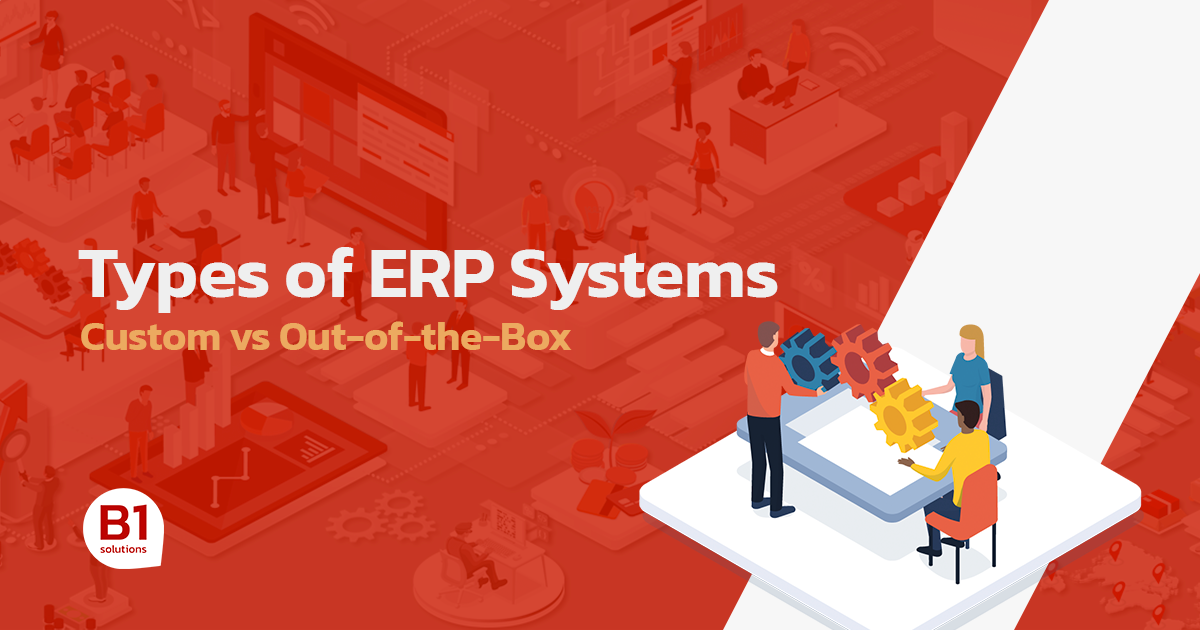
March 2024
Custom vs Out-of-the-Box ERP Systems
Numerous businesses realised how fragile they were when the pandemic occurred, and they had to close their premises, resulting in them struggling to complete regular operations. Many of these businesses have now turned towards ERP systems to help them improve growth and profit and prevent similar situations; a forecast by Statista revealed that the entire ERP market is expected to grow to 101 billion USD by 2026.
With many vendors offering different solutions, it can be challenging to understand what each one does and what type of applications there are. This blog covers the two types of software that can be purchased: Custom and Out-of-the-Box.
So, what are they, and what's the difference between them?
Custom & Out-of-the-Box
A customised ERP has been explicitly designed to resolve the issues you face daily and can help you achieve the goals you've set. This type of system is ideal for businesses looking to control their entire organisation from one system and need a solution that will help them grow and scale with that growth.
An Out-of-the-Box ERP system is a solution that has all the tools, templates and features built in from the get-go. While this may seem ideal, these systems aren't usually customisable and come packed with features that aren't relevant to your business/industry.
Pros & Cons of Custom Software
Pros- Improved Integration: Custom systems can be altered to work with the applications and software your business currently uses. You can learn more about integrations in our other blog here.
- Addresses All Problems: Custom ERPs can be tailored to resolve all your challenges and help you meet your goals.
- Flexibility: This type of system can help you futureproof your business and scale with you as you grow.
- Larger Upfront Cost: Custom software does come at a higher price due to the expertise, time and effort required.
- Longer Rollout Time: The software does have a longer deployment time because of development.
Pros & Cons of Out-of-the-Box Software
Pros- Lower Upfront Cost: These systems are cheaper than custom solutions.
- Easier To Learn: Out-of-the-Box software comes with standardised interfaces and features, making them easier to learn.
- Scalability Restrictions: These systems won't adapt to your growth, meaning you could require a different system down the line.
- Rarely Customisable: Many Out-of-the-Box systems only support minor customisation.
- Flexibility: You may need to change existing processes to match how the system operates, which can be difficult.
Which Should You Pick?
If you're a small business looking for a system that can be deployed quickly to help some aspects of your organisation, then an out-of-the-box system like Microsoft Dynamic 365 could suit it.
If you're looking for something that can scale with you, help you improve profits and work with precise operations, then a customised solution like SAP Business One would be perfect for your organisation.
If you'd like to see how SAP Business One can benefit your business, sign up for one of our free discovery calls.
If you have any questions, feel free to drop us an email at sales@b1sol.co.uk.
